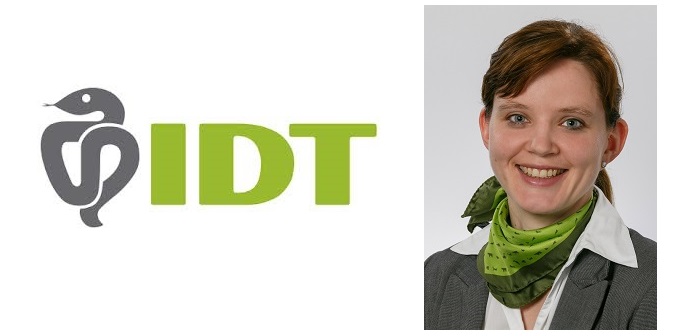Discussion concerning what would constitute the “ideal monitoring system for salmonella in pork” is to be the focus of a three-day symposium, to be held in Germany next week, involving around 30 specialists from universities, governmental institutions, abattoirs and diagnostic laboratories.
Organised by IDT Biologika, the event is scheduled for September 23-25, with delegates being drawn from Belgium, Denmark, France, Germany, Spain and the UK.
“Although there has been EU-wide legislation on the control of salmonella for 12 years, little progress has been made,” said IDT’s international technical service manager, Dr Verena Gotter (pictured above). “This is mainly due to the fact that the experts in different parts of the pork supply chain have never really talked to each other so there isn’t a consensus on the ideal way to monitor salmonella in pigs.”
Pointing out that the latest data from the European Food Safety Authority shows that, while the general risk of salmonella infections in humans of food-borne origin is decreasing, the relative importance of pork products is increasing, Dr Gotter said the pig industry had “failed to take lessons on salmonella control from poultry businesses”.
She also warned that salmonella outbreaks can have huge financial repercussions.
“Germany’s largest abattoir/processor has instituted a 0.30 Euro per kg (22p/kg) penalty on pigs falling into the worst category of their salmonella monitoring system,” she said.




